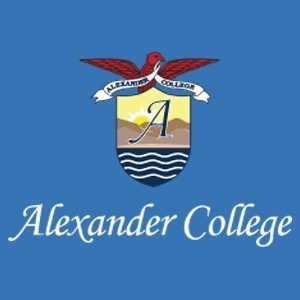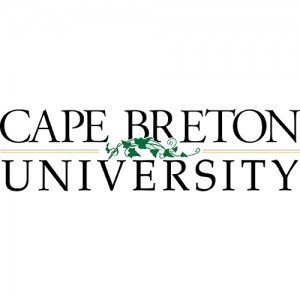Photos of university / #umanitoba
The Bachelor of Arts in Global Political Economy (General Major) at the University of Manitoba is a comprehensive academic program designed to provide students with a deep understanding of the complex interrelationships between politics, economics, and global affairs. This interdisciplinary major equips students with the analytical skills necessary to critically examine how political decisions influence economic policies and, conversely, how economic forces shape political landscapes on both national and international levels. The program offers a diverse curriculum that covers key topics such as international trade, finance, development, environmental policy, human rights, and global governance, enabling students to develop a well-rounded perspective on contemporary global issues. Students enrolled in this program benefit from a combination of theoretical coursework and practical approaches, fostering critical thinking, quantitative analysis, and communication skills essential for careers in policy analysis, international organizations, governmental agencies, nongovernmental organizations, and the private sector. The program emphasizes interdisciplinary learning, encouraging students to explore diverse fields such as sociology, history, law, and environmental studies to enrich their understanding of global political economy. Within the major, students can choose electives that align with their interests and career goals, including specialized topics like regional economic integration, sustainable development, and international conflict resolution. The University of Manitoba's faculty includes leading scholars and practitioners dedicated to mentoring students and facilitating opportunities for research, internships, and study abroad experiences. Graduates of the Global Political Economy program are prepared to engage critically with global challenges and contribute meaningfully to policymaking or further academic pursuits. The program's flexible curriculum and supportive academic environment make it an ideal choice for students passionate about understanding the dynamic forces shaping our world and seeking careers that require a nuanced comprehension of global political and economic systems.
The Bachelor of Arts in Global Political Economy (General Major) at the University of Manitoba offers students a comprehensive exploration of the interconnected worlds of politics and economics on a global scale. This program is designed to equip students with a deep understanding of how political institutions, policies, and international relations influence economic development, trade, and financial systems worldwide. Throughout the degree, students will analyze critical issues such as globalization, economic justice, international governance, and environmental sustainability, preparing them for careers in government, international organizations, non-governmental organizations, policy analysis, and the private sector.
The curriculum combines courses in political science, economics, and international studies, providing a multidisciplinary approach to understanding complex global issues. Students begin with foundational courses that introduce key concepts in political theory and economic principles. As they progress, they choose from a diverse range of specialized courses covering topics like international trade policies, development economics, global financial markets, human rights, and environmental policies. The program emphasizes critical thinking, analytical skills, and research methods to enable students to assess real-world challenges and develop informed policy solutions.
In addition to classroom learning, students have opportunities to engage in case studies, simulations, and research projects that simulate real-world policy-making scenarios. Some courses may include opportunities for international exchanges or internships, giving students practical experience and exposure to global political and economic environments. The program also encourages students to develop strong communication skills through written assignments and presentations, essential for effective advocacy and policymaking.
Graduates of the Global Political Economy program are prepared for a variety of career paths, including roles in international development agencies, governmental departments, think tanks, research institutions, and multinational corporations. Many students choose to pursue further studies in law, international relations, or specialized graduate programs to deepen their expertise. By fostering an understanding of the complex relationships between political power and economic forces, this program aims to produce well-rounded, globally-minded professionals ready to address today’s pressing international issues.
Program Requirements for Global Political Economy (General Major) at the University of Manitoba:
The Bachelor of Arts in Global Political Economy (GPE) at the University of Manitoba is designed to provide students with a comprehensive understanding of the interconnectedness of politics, economics, and global affairs. To complete the degree, students are required to fulfill a combination of core courses, specialization courses, electives, and additional requirements as specified by the Faculty of Arts.
Students must complete a minimum of 120 credit hours, which includes foundational courses in political science, economics, and international relations. The program typically begins with introductory courses such as Introduction to Political Science, Principles of Microeconomics and Macroeconomics, and Global Political Economy Foundations. These courses establish essential theoretical frameworks and analytical skills needed for advanced study.
Advanced coursework focuses on topics like international trade, development economics, global financial systems, political theory, and comparative politics. Students are encouraged to choose electives aligned with their interests within the field, which may include courses in environmental politics, human rights, or security studies. The program emphasizes the development of critical thinking, research skills, and an understanding of contemporary global issues.
In addition to coursework, students may be required or recommended to complete a capstone project or thesis that demonstrates their analytical capabilities and understanding of global political economy issues. Some programs also encourage or require practical experiences such as internships, studies abroad, or participation in simulation exercises to enhance real-world understanding.
Language proficiency requirements depend on the student's background and may include submitting proof of language skills if courses or program components are delivered in languages other than English. The program also entails maintaining a minimum GPA as specified by the university policies to ensure academic standing.
Overall, students are encouraged to meet regularly with academic advisors to tailor their course selections to their academic and career goals. By the end of the program, graduates will possess a solid understanding of global economic systems, political structures, and the methods used to analyze international issues, preparing them for careers in government, international organizations, NGOs, or further academic pursuits.
(Approximately 1,820 characters)
The University of Manitoba offers a comprehensive approach to financing studies within its Global Political Economy (General Major) program, integrating various funding options to support students throughout their academic journey. Tuition fees for the program are structured to be accessible, with detailed fee schedules available through the University's Office of the Registrar. International students and Canadian residents may have different fee structures, and potential applicants are encouraged to consult the official website for current rates and possible increases.
Many students finance their education through a combination of personal savings, part-time employment, and scholarships. The University of Manitoba provides a range of merit-based scholarships, bursaries, and awards specifically geared toward students in social sciences and international studies. These include entrance scholarships for new students and continuing awards based on academic achievement and financial need. In addition, there are external funding opportunities, such as government grants, private foundations, and non-profit organizations offering financial support for students pursuing global studies.
The University also participates in federal and provincial student loan programs, which can cover a significant portion of educational expenses for eligible students. Loan applications are processed through provincial student aid offices, with repaid amounts contingent upon future income levels. Work-study programs are available, enabling students to gain relevant work experience while earning income to offset their costs. Cooperative education options may also be offered, allowing students to alternate between academic terms and paid employment related to their major.
International students are encouraged to explore scholarship opportunities designated for international entrants, as well as external funding sources from their home countries. The University of Manitoba's Financial Aid and Awards Office provides personalized guidance to help students identify suitable funding options. Additionally, students are advised to explore departmental grants or research assistantships that might be available for those engaging in specialized research projects within global political economy.
Graduate students pursuing advanced degrees within the program can access targeted funding options such as research grants, assistantships, and fellowships, which are often provided through faculty-sponsored initiatives or external bodies. The university emphasizes a proactive approach to financing studies, promoting early application for all available funding sources to minimize financial burden.
In summary, financing studies in the Global Political Economy (General Major) program at the University of Manitoba involves a multi-faceted approach, combining institutional scholarships, government loans, external grants, work opportunities, and personal resources. The university's dedicated financial aid services assist students in navigating these options to make their educational goals achievable and sustainable.
The Global Political Economy (General Major) at the University of Manitoba is a comprehensive interdisciplinary program designed to equip students with a thorough understanding of the complex interactions between politics and economics on a global scale. This major emphasizes critical analysis of the political, economic, and social forces that shape international markets, trade policies, economic development, and global governance. Students enrolled in this program engage with a diverse set of courses covering topics such as international trade, economic policy, globalization, public policy, political theory, and economic development strategies. The program aims to foster analytical skills, critical thinking, and an understanding of the interconnectedness of political and economic systems worldwide.
Students have opportunities to study issues such as economic inequality, environmental sustainability, international diplomacy, and the role of international organizations like the United Nations and World Trade Organization. The curriculum is designed to prepare graduates for careers in government, international organizations, non-governmental organizations, international business, and policy analysis. The program often includes opportunities for internships, research projects, and international exchanges, enhancing practical experience and global awareness.
The University of Manitoba supports students in developing strong communication and research skills through writing-intensive coursework and seminars. Additionally, students are encouraged to participate in extracurricular activities related to political economy, such as model United Nations conferences, debates, and student organizations. Graduates of the program are well-equipped for further studies in graduate or professional schools, or to enter the workforce in roles that require a nuanced understanding of global political and economic issues. The program's flexibility allows students to tailor their coursework to specific interests within the broad field of global political economy, preparing them comprehensively for dynamic and evolving global environments.





